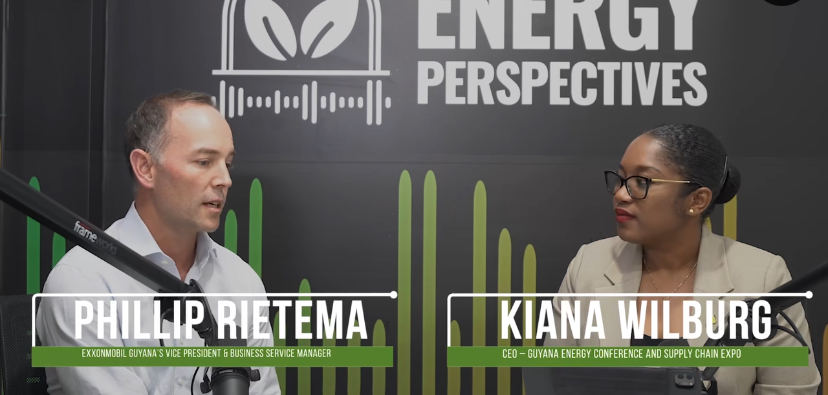ExxonMobil Guyana’s commitment to reinvestment in the country is setting the stage for long-term economic growth and stability, according to Vice President and Business Service Manager Phillip Rietema. In a recent interview on the Energy Perspectives Podcast, a programme powered by the Guyana Energy Conference and Supply Chain Expo, Rietema underscored the importance of the Stabroek Block’s Production Sharing Agreement (PSA) which has enabled substantial investments and will continue to facilitate significant reinvestment in the region.
Since its initial foray into Guyana 25 years ago, ExxonMobil, along with its current partners Hess and CNOOC, have committed to a robust investment strategy that has transformed the nation’s economic landscape. As of the end of 2023, the consortium had invested approximately US$30 billion, with future commitments expected to push that figure to US$55 billion.
Rietema highlighted that the reinvestment strategy is not just about injecting capital into new projects but also about ensuring that these investments lead to tangible benefits for the people of Guyana. “We have over 1,700 unique Guyanese businesses involved in the oil and gas industry, and our operations now employ over 6,000 Guyanese throughout the value chain,” he stated. This approach has fostered a thriving local content ecosystem that is vital for the country’s socio-economic development.
Central to ExxonMobil’s ability to make such significant investments is the PSA which Rietema described as a fundamental enabler of the companies long-term commitment to Guyana. First signed in 1999, the PSA allows ExxonMobil and its partners to explore and develop oil resources in the Stabroek Block, providing a framework that balances risk and reward.
Under the terms of the 2016 PSA, ExxonMobil and its partners are permitted to recover up to 75 percent of their investment costs in a month from the revenues generated by oil production. The remainder, known as profit oil, is shared 50-50 between the government and the contractor group. Additionally, a 2% royalty on gross revenues is paid to the government, further ensuring that Guyana benefits significantly from its natural resources.
Rietema emphasized the importance of the contract’s stability, noting that changes in the fiscal regime or contract terms could deter future investment. “The contract is doing exactly what it set out to do, which is to bring foreign investment into Guyana, enabling us to explore, develop, and now produce oil at an unprecedented scale,” he explained.
Rietema also pointed out that as production ramps up and investment costs are recovered, the proportion of revenues going to profit oil will increase, leading to even greater benefits for Guyana. “With our six projects, the expected cash inflows for the State over the coming years are projected to exceed US$100 billion,” he noted, emphasizing the transformative potential of these revenues for the nation’s future.
As Guyana moves towards producing 1.3 million barrels of oil per day by 2027, the role of ExxonMobil’s investments and the stability provided by the production sharing agreement will be critical in ensuring that the country can harness its natural resources offshore for lasting prosperity.













